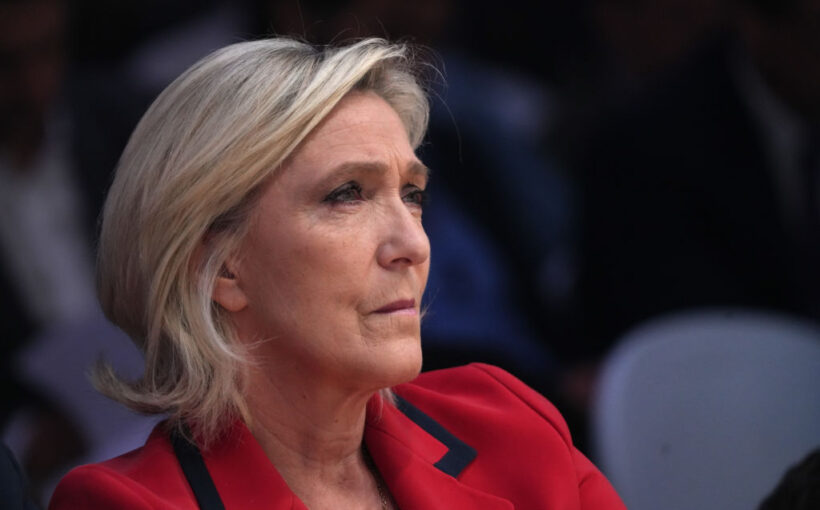PARIS — France is facing what until recently was an unthinkable nightmare for Europe: the prospect of a far-right government taking power in Paris for the first time.
On Sunday, Marine Le Pen’s National Rally made big gains in the first round of a snap election that could upend political orthodoxy across the European Union and beyond, with implications for markets and global security that will be hard to predict.
According to early estimates by pollsters Ipsos, the National Rally is on course to win 34 percent of Sunday’s vote while French President Emmanuel Macron’s centrist alliance suffered staggering losses, coming third with 20.3 percent of vote. The left-wing alliance made a strong showing with 28.1 percent of the vote.
“The French people have shown that they want to draw a line under seven years of [Macron’s] disdainful rule,” said Le Pen, speaking at a party event in the Eastern French town of Hénin-Beaumont. “We haven’t won yet, the second round will be crucial … we need an absolute majority so that Jordan Bardella, in eight days, can be appointed prime minister by Emmanuel Macron,” she added.
According to early projections based on exit polls, Le Pen’s party is expected to get 230-280 seats in the 577-seat national assembly, the left wing alliance 125-165 seats and Macron’s coalition 70-100.
Seat projections however are conjectural at this stage and dependent on political decisions taken in the coming days ahead of the second round of voting on July 7. Macron himself is due to stay in power until the end of his mandate in 2027, regardless of the outcome of this assembly election.
Source: Ipsos polling institute
For latest updates read POLITICO’s French election live blog.
France is voting in a crucial snap election that looks set to have a resounding impact across Europe. The far right is skeptical of France’s role in NATO and the EU and has never been closer to power. If the early estimates are confirmed in later results, Le Pen’s party, now led by the slick 28 year-old Jordan Bardella, stands a good chance of forming a ‘cohabitation’ government under Macron’s presidency.
On Sunday, the French president called for “democratic and republican” forces to unite against Le Pen’s party. “Faced with the [rise of the] National Rally, we need to foster a wide unity that is clearly democratic and republican ahead of the second round,” Macron said, according to a statement from the Elysée Palace. “The high turnout … shows how important the vote was for our fellow citizens, and how they want to clarify the political situation.”
The French president shocked the nation and France’s international allies when he triggered the vote only a couple of weeks before the Olympic Games, after a humiliating defeat in June’s European parliament election.
It was an audacious move designed to stop the far right advance in its tracks by forcing French voters to choose a new parliament. On the strength of the early projections so far, his gamble looks set to fail.
In constituencies where three candidates have qualified to go through to the second round next Sunday, the third-placed candidate will be under pressure to pull out to defeat the National Rally. It looks likely that Macron will face a tough choice in many areas over whether to withdraw his candidates in an effort to defeat Le Pen’s party.
Former Prime Minister Édouard Philippe, a Macron ally, called on people to vote against National Rally and far-left France Unbowed candidates. “I consider that no vote should be cast for the candidates of the National Rally, nor for those of [hard-left] France Unbowed,” said Philippe, who is Macron’s former prime minister and the head of center-right party Horizons. He called on the presidential camp’s voters to back left-wing candidates only from the Green, Socialist and Communist parties.
This developing story is being updated.


